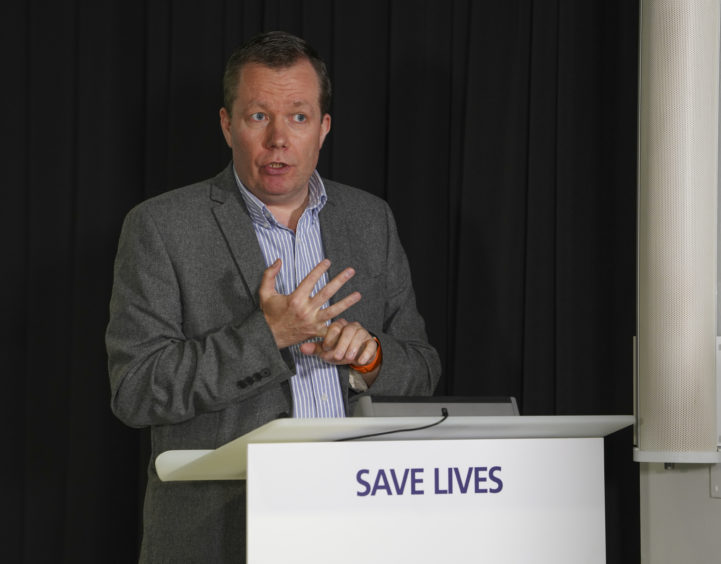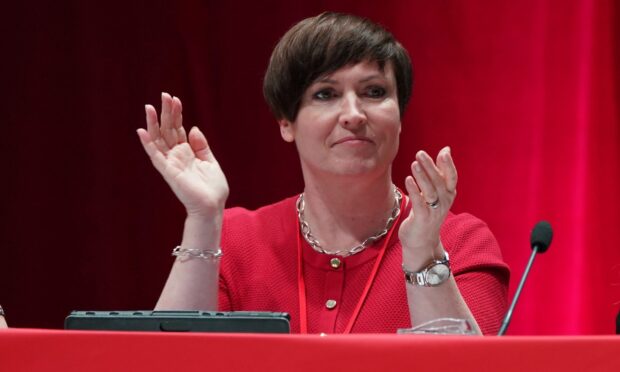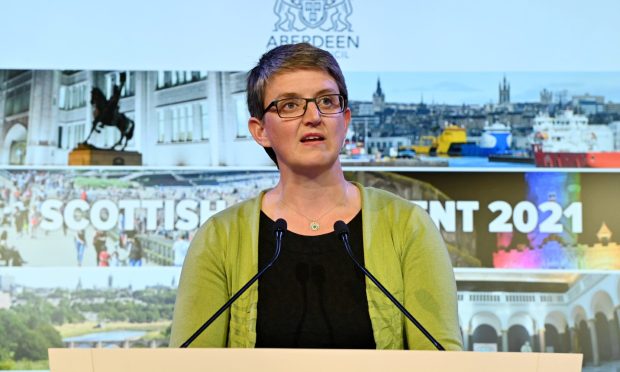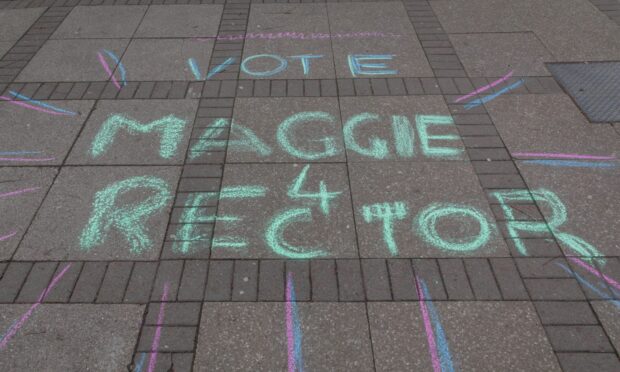Nicola Sturgeon warned face masks will have to be worn for the “foreseeable future” as Scotland recorded the highest number of new coronavirus cases for three weeks.
At her daily coronavirus briefing, Ms Sturgeon reported there had been no Covid-19 deaths in the last 24 hours, but there had been 18 new cases compared with six the day before.
The first minister described the rise as “very low” but said it was being investigated “very closely” and as yet there was no suggestion the cases were linked.
But National Clinical Director Professor Jason Leitch said the increase could be related to the easing of lockdown measures made three weeks ago.
The day after she announced the most significant relaxation of the coronavirus restrictions, Ms Sturgeon admitted she was anxious about the impact that moving into Phase Three of the route map out of lockdown would have on the disease.
And speaking on the day when face-coverings became compulsory in shops, the first minister was unable to say when the people would have to stop wearing face masks.
“I certainly hope it is not permanent like seatbelts. But I think it is for the foreseeable future,” Ms Sturgeon said. “Therefore it is as well getting into the habit (of wearing them) now and treating it as much as an automatic instinct as we do seatbelts now. “
Ms Sturgeon admitted she was “nervous” about moving into the next phase out of lockdown, which will allow meeting up with two other households inside, relaxation of physical distancing in shops and public transport and the re-opening of pubs and restaurants indoors next week.
We’ve been in lockdown for more than three months now but being in lockdown ourselves has meant that the virus has also been in lockdown. As we come out of lockdown, unfortunately we let it out again too. So we have to work in a sense even harder to make sure that it doesn’t get those opportunities to spread.”
Nicola Sturgeon
She urged the public not to become complacent as businesses open up and people are able to enjoy more freedom.
“This virus hasn’t gone away so life should still not feel totally normal,” Ms Sturgeon said.
“The lifting of restrictions, important and welcome though it undoubtedly is, mustn’t mean the dropping of our guard, and that’s really important.
“We’ve been in lockdown for more than three months now but being in lockdown ourselves has meant that the virus has also been in lockdown.
“As we come out of lockdown, unfortunately we let it out again too. So we have to work in a sense even harder to make sure that it doesn’t get those opportunities to spread.”
Professor Leitch said he was comfortable with the move from Phase Two to Phase Three of the route map, but admitted he got “more anxious the more we open”.
He was “particularly nervous” about the relaxation of restrictions indoors and the coming together of larger groups, adding that the World Health Organisation was warning the pandemic was “worsening” in many countries.
Questioned about the 18 new cases which takes the Scottish total up to 18,333, Ms Sturgeon said the increase was three times the number reported the day before and was the highest number since June 21st.
“So it is not nothing, but we shouldn’t jump to conclusions,” the first minister said.
“Let’s not read too much into this just now. If there is anything to worry about in these cases that will become obvious in the next few days and we will set out then if there is anything we think we need to do.”
Professor Leitch said there was “no suggestion” the cases were linked at this stage.
“If they go up over the next few days. Then we will have to look in very deep and serious ways into what has led to those cases,” he added.
When asked if the new cases could be linked to lockdown easing when Scotland moved into phase two, Professor Leitch said rising cases could “potentially relate” to the relaxation of restrictions, noting it took around three weeks for patients to become very sick after infection.
“Of course it could,” he said, adding that as Scotland moves along the route map officials would have to keep a “very, very close eye” on data around positive cases, hospital admissions and intensive care admissions.
There are 668 people in hospital with confirmed or suspected Covid-19, up 22 in the past 24 hours. Of these patients, 12 are in intensive care, a rise of three.










